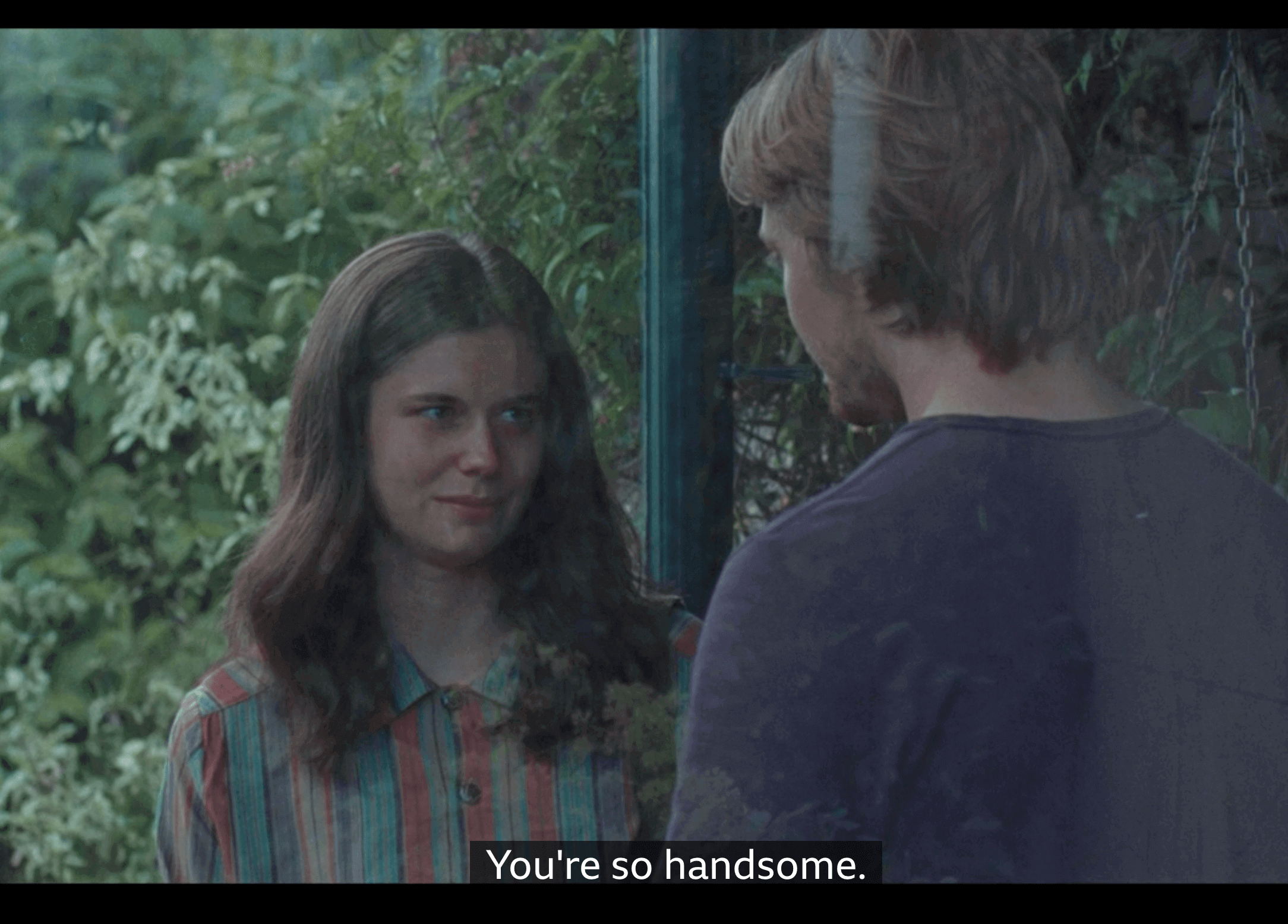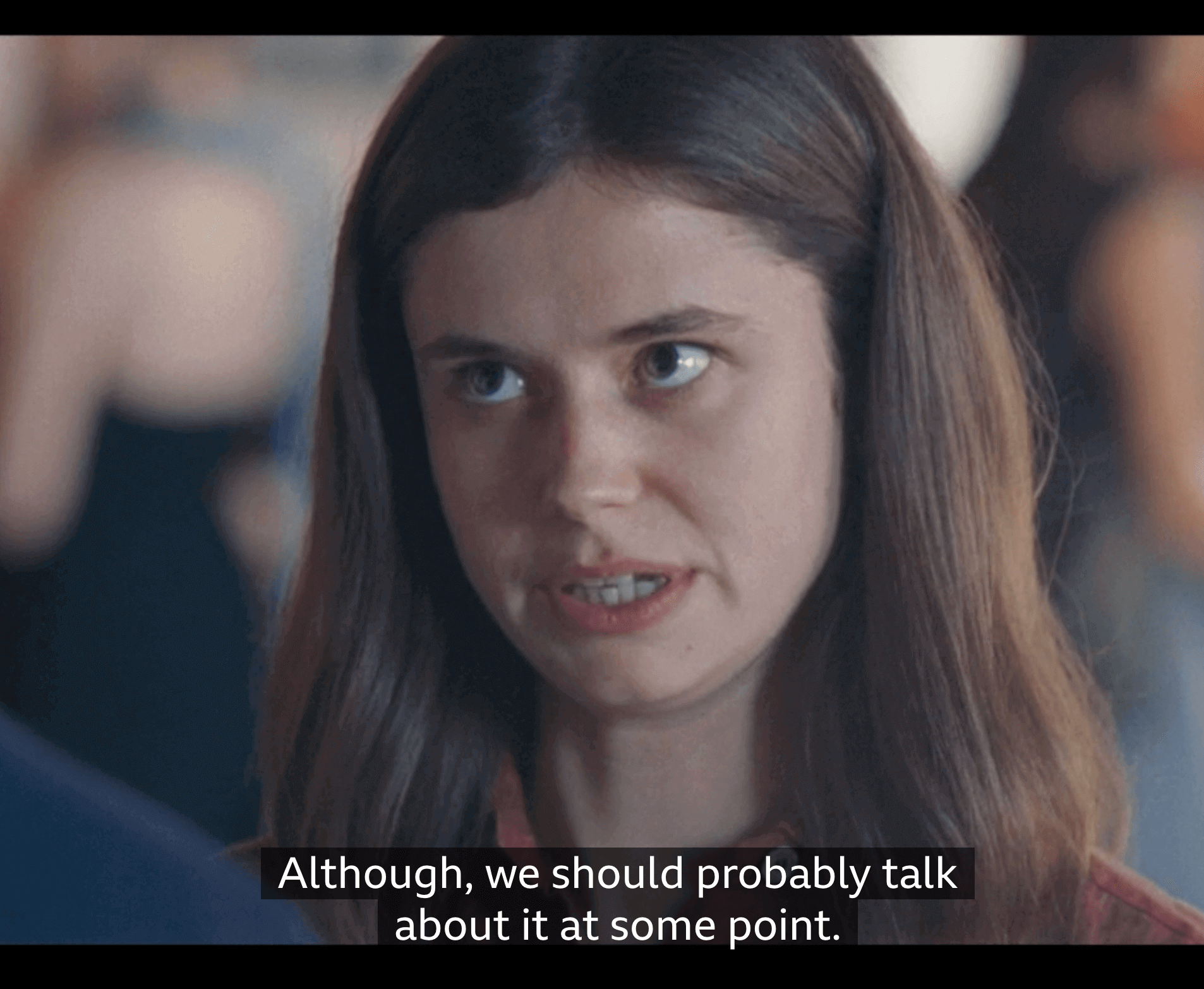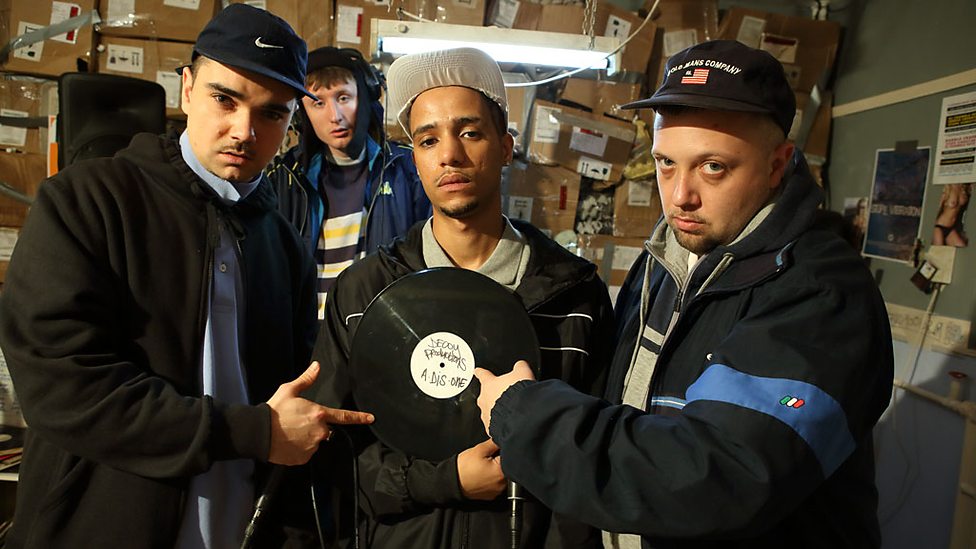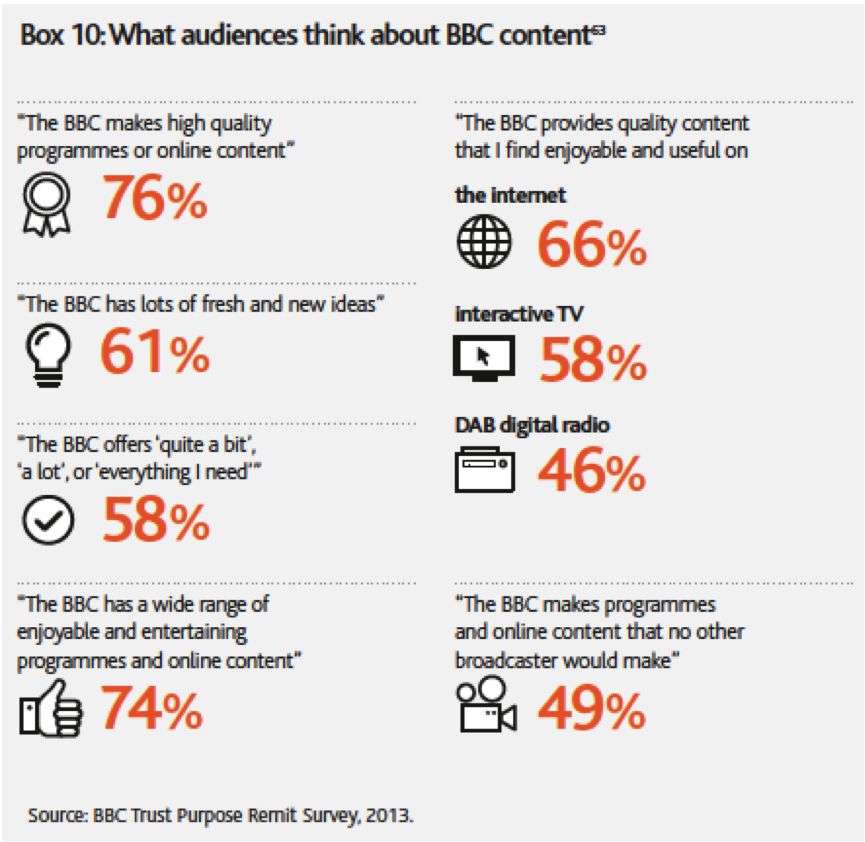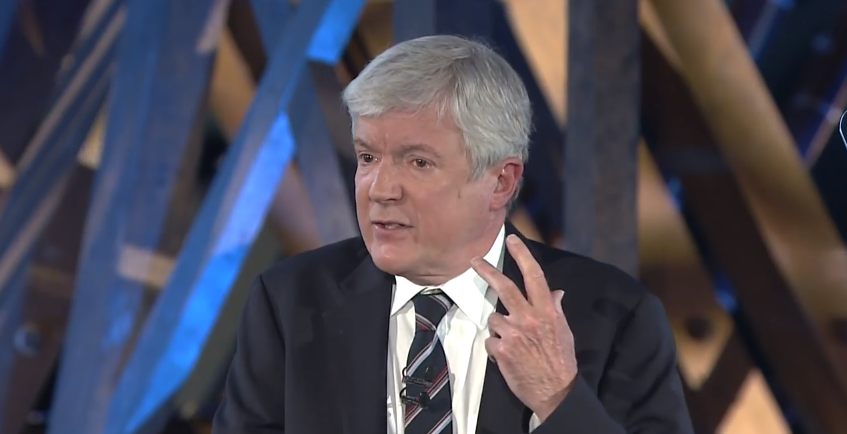Amid all the awkward, evasive and stilted exchanges between Nick (Joe Alywn) and Frances (Alison Oiver) in the recent TV adaptation of Conversations with Friends, this banter was like a life preserver thrown out to us. Imagine if they’d adopted this tone all the way through…
It’s not a criticism of the acting but I remember these characters being more interesting in the book. Ennui plays better on the page, as does awkwardness, and we ask less of the dialogue there. Their interiority is richer. Even the more languorous moments can be telling, in a subtle and nuanced manner, if we let our imagination engage.
Writing for the Evening Standard, Phoebe Luckhurst pinpoints what’s lost in adaptation: “Frances is a passive, malleable drip of a girl … at times so passive, such a spectator, she almost disappears off the screen — and Nick is a charisma vacuum. In the book, this is the point: fiction’s best characters are the introspective introverts, the watchful observers who dissect reality for us. But on screen, it means Frances and Nick are constantly outshone, upstaged — to the extent that scenes with just the pair of them can drag.”
The line that really spoke to me when I read Sally Rooney’s novel is this closing thought from the author as narrator: “You live through certain things before you understand them. You can’t always take the analytical position.” It cuts to the core of Frances and how she is so desperate to feel sure of herself, to assert herself as a writer, an adult, a woman.
Capitalism, class and power play into these concerns and the book does a better job of exploring them in the context of her relationship with Nick. How he loans Frances money when dad’s allowance stops. And when she asks Nick to hit her, almost as punishment, after a one-night stand with a guy on a dating app.
Frances has her struggles with mental health, low self-esteem, is quick to self-harm and is diagnosed with endometriosis. She’s going through a lot. But when it comes to Nick, it’s hard to sympathise too much with someone who wants someone else’s husband all to herself and uses her best friend to make him jealous. Here, Alison Oliver does a good job of wringing maximum solipsism out of Frances.
It took a while to empathise with Nick’s struggles, let alone care about them. Anyone can feel worthless or rudderless at some point in their lives, even handsome people. But this revelation felt more out of character than in the book. Lots of people think Alwyn portrayed him perfectly. Maybe he did and I’m asking too much of a depiction on screen. Both are men of few words, I’ll give them that.
nick is dull, emotionless, awkward, and depressed. that’s what he’s supposed to be. joe alwyn portrayed him perfectly https://t.co/QEBnIeG8dU
— abdullah (@abdullahosmn) May 15, 2022
“jOe alWyN is bOriNg aS niCk” DID YOU EVEN READ THE BOOK? Nick has the personality of unseasoned tofu
— laura🏹🪩 swifthaim nation (@taymyepiphany) May 16, 2022
TV Nick does give us some LOL moments though, as if he’s dialing up the “dull” and “emotionless” parts. The way he acknowledges Frances’ suggestion that they talk about their forbidden tryst by grunting “yeah” – I had to run that back 😂 The Terminator had more chat and personality. PS, what’s up with that accent?
When his wife Melissa (Jemima Kirke) has a heart-to-heart/showdown with Frances, her description of him as “pathologically passive” was such an acerbic but appropriate put-down. Kirke delivered it with just the right blend of exasperation, frustration and disdain.
In the book, however, Melissa writes a carefully constructed email to Frances and uses the description “pathologically submissive” – a curious amendment. You might say the two are analogous but for me, one is more extreme than the other. And that does shift their intimacy into a slightly different territory.
Frances tells Nick he is such as appealing “love object” because he is so “curiously passive”, which is not the impression we get in the show. She elaborates: “I knew I would have to be the one to kiss you. And that you would never kiss me, which made me feel vulnerable. But I also felt this terrible power, like, you’re going to let me kiss you, what else will you let me do? It was sort of intoxicating. I couldn’t decide if I had complete control over you or no control at all.'“ I suppose this aspect of their affair, and what they mean to each other in it, is open to interpretation and could have been explored further.
One comment piece argued that the show has merit because it offers a more nuanced portrayal of infidelity on screen, one that’s rooted in unresolved feelings, a desperate need for validation and to be desired, and not the caricature of promiscuity, revenge or pure selfishness we’re used to.
Polyamory is a big talking point at the moment. A challenge to the tradition of monogamy as our best chance of a happy relationship. The “epitome”, as Rooney has described it. In that context, the show is interesting.
When they kiss, you can feel how much Frances and Nick need one another. It’s effusive, overwhelming, liberating, as if their souls are ignited and their bodies must follow. And nothing else matters. Their anxious minds can switch off. Otherwise, their dynamic is flat on TV. And the self-absorption is fatiguing, as her best friend and former girlfriend Bobbi (Sasha Lane) tells Frances.
What did you think of it? How did it compare to the book?
Conversations with Friends is on BBC One and streamable on BBC iPlayer.

